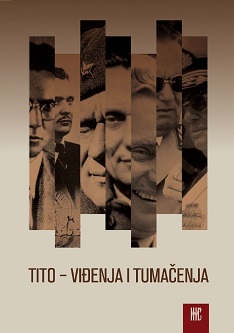Sovjetski uticaj i Josip Broz Tito uoči izbijanja ustanka u Jugoslaviji 1941. godine
The Soviet Influence in Yugoslavia and Josip Broz Tito on the Eve of Uprising in Yugoslavia in 1941
Author(s): Aleksej J. Timofejev
Subject(s): Military history, Political history, International relations/trade, Security and defense, WW II and following years (1940 - 1949), History of Communism
Published by: Institut za noviju istoriju Srbije
Keywords: Tito; World war 2; intelligence service; partisan war; Comintern;
Summary/Abstract: In the holdings of the Comintern reports by J. B. Tito are preserved that testify to the role of this organization in appointing new leader of the Communist Party of Yugoslavia (CPY) and in determining personal and financial policy of the Party on the eve of WWII. Considerable number of Yugoslav communists received good military-partisan training in the USSSR and Spain during the prewar period. It is very likely that Josip Broz Ttio himself was educated at the „partisan school" in the USSR and that he later taught there himself. Connection with the Soviet security organs is also proven by Tito's special engagement in a tricky „cader" matter during the Spanish civil war. After the defeat of the Spanish republic most of the Yugoslav „Spaniards" were interned in France. Only in 1941 did part of the „Spaniards" manage to return to the Balkans. According to the official version of Tito’s biography the whole action was organized by Cvetko Većeslav Flores „without anyone’s help". Obviously someone with military and partisan experience had to help the Yugoslav communists to reach their homeland on the eve of the uprising. In the Comintern’s files of the Yugoslav „Spaniards" questionaries about their engagement on the Iberian Peninsula appeared in late 1940 and early 1941. These enquieries in the files of the Yugoslav „Spaniards" were made at the request of the „external organization" i.e. of the Soviet intelligence service. Some 250 former Spanish combatants took part in the events in Yugoslavia 1941-1945 and to all intents they were one of the main pillars in creation of the partisan movement The ascent of Tito’s career was aided by several factors which had different importance atvarious stages of his career. On the eve of 1941 the most dominant were the endeavors of Soviet instructiors to impart the Yugoslav Party cadres and even J. B. Tito himself, military and special skills during the 1929-1938 period. An important role was played by Tito’s ties with the Cadre's Department of the Comintern and the Soviet intelligence organs which Tito forged during the sending of Yugoslav cadres to Spain.
Book: Tito - Viđenja i tumačenja
- Page Range: 741-749
- Page Count: 9
- Publication Year: 2011
- Language: Serbian
- Content File-PDF

